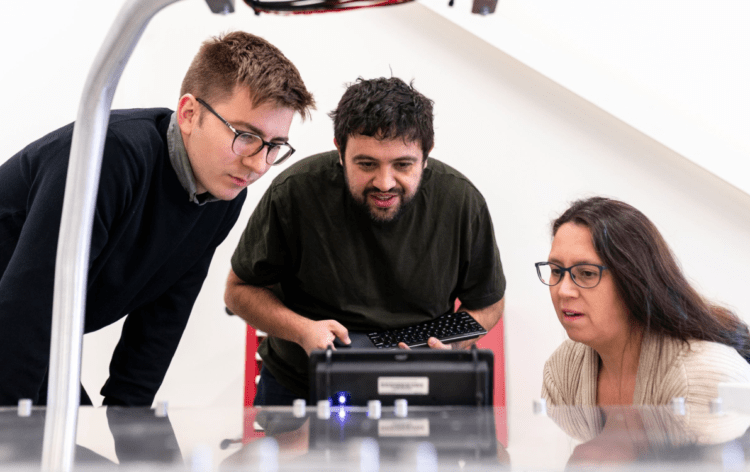The Transformative Power of AI in Education: Exploring Possibilities and Implications

Artificial Intelligence (AI) has emerged as a transformative force in various aspects of our lives, and education is no exception. With its vast potential to revolutionize teaching and learning, AI is reshaping the educational landscape, offering new possibilities and opportunities. From personalized learning experiences and intelligent tutoring systems to advanced data analytics and automated grading, AI is enhancing educational outcomes, promoting accessibility, and expanding the boundaries of knowledge. As AI continues to advance and integrate into educational settings, it holds the promise of empowering students, supporting educators, and fostering innovation. In this article, we delve into the profound influence of AI on education and explore its implications for the future.
Benefits of AI in Education
The utilization of Artificial Intelligence (AI) has brought about substantial advancements in the realm of education, revolutionizing the methods of learning, teaching, and interacting with educational materials. With its pioneering implementations, AI has effectively enhanced the educational landscape by delivering customized and captivating learning experiences for students, while simultaneously offering educators valuable assistance and access to essential resources.
One notable example is the development of intelligent tutoring systems. The AI-driven programs systematically evaluate student performance, pinpoint individual areas of proficiency and areas that need improvement, and offer personalized feedback and guidance accordingly. By adapting to each student’s unique needs, intelligent tutoring systems enhance learning outcomes by targeting areas that require improvement and offering personalized instruction.
AI has also revolutionized content creation and delivery. With AI-generated content, educational materials can be produced efficiently and at scale. For instance, AI-powered platforms can generate interactive video lessons, quizzes, and practice exercises tailored to different learning styles and abilities. This not only saves time and resources but also ensures that educational materials are accessible to a broader audience, including learners with diverse needs and preferences.
Additionally, AI enables advanced data analytics in education. Through the analysis of extensive educational data, AI algorithms have the capability to uncover valuable insights regarding student performance, learning patterns, and areas that require enhancement. This data-driven approach helps educators make informed decisions, such as identifying effective teaching strategies, designing personalized interventions, and implementing targeted support for struggling students.
Furthermore, AI has expanded access to education, particularly in underserved communities. The availability of AI-driven virtual classrooms and online learning platforms enables students to access educational content and resources irrespective of their location, eliminating geographical limitations. This is particularly impactful for learners in remote areas or those who face limitations due to physical disabilities.
Why AI is More of A Danger to Education Than A Benefit?
While Artificial Intelligence (AI) has brought numerous advancements to the field of education, there are concerns about its potential negative impact on the quality of education and the professionalism of certain professions. One of the main concerns is the fear that AI will replace human educators, diminishing the value of human interaction and the expertise of teachers. Critics argue that relying solely on AI for instruction may undermine the social and emotional aspects of learning, which are crucial for holistic development.
Another concern is the potential for AI to perpetuate biases and inequalities in education. AI systems learn from existing data, and if the data used for training contains biases or reflects existing inequalities, the AI algorithms can inadvertently amplify those biases. This can result in biased content recommendations, unequal access to educational opportunities, or even reinforce stereotypes among learners.
Moreover, some worry that AI-driven automation may disrupt certain professions, including those in the education sector. As an illustration, grading systems powered by AI have the potential to automatically assess assignments and exams, potentially eliminating the requirement for human graders. While this automation may increase efficiency and speed, critics argue that it can undermine the value of human assessment, feedback, and the nuanced understanding that human educators bring to evaluating student work.
In addition, the use of AI in career guidance and counseling raises concerns about the impact on the professionalism of these fields. AI-driven systems can provide recommendations based on algorithms and data analysis, but they may lack the human touch and empathetic understanding that is crucial in guiding students through important decisions about their education and career paths.
The utilization of AI in education raises concerns regarding data privacy and security. The extensive collection and analysis of student data by AI systems bring forth inquiries regarding the entities with access to this information, the manner in which it is utilized, and the measures in place to ensure its appropriate safeguarding. The potential misuse or mishandling of student data can have serious implications for privacy and trust in educational institutions.
To address these concerns, it is essential to adopt a cautious and responsible approach to AI implementation in education. To address these concerns, it is essential to establish comprehensive regulations and policies that promote transparency, fairness, and accountability in AI systems. Additionally, it is crucial to adopt a balanced approach that combines the advantages of AI with the invaluable contributions of human educators and professionals. By leveraging AI as a tool to enhance teaching and learning rather than replacing human involvement, we can strive for a future where AI and human expertise work together synergistically to deliver high-quality education and support.


























Comments (0 comment(s))